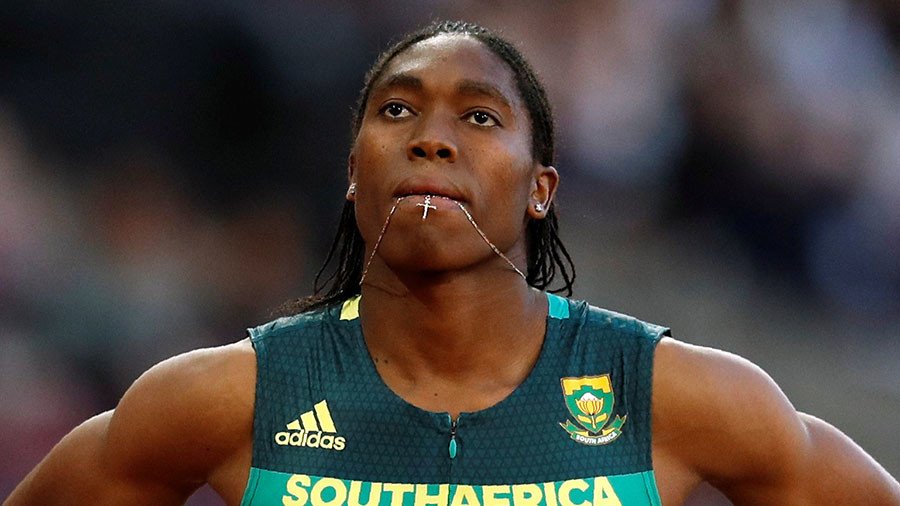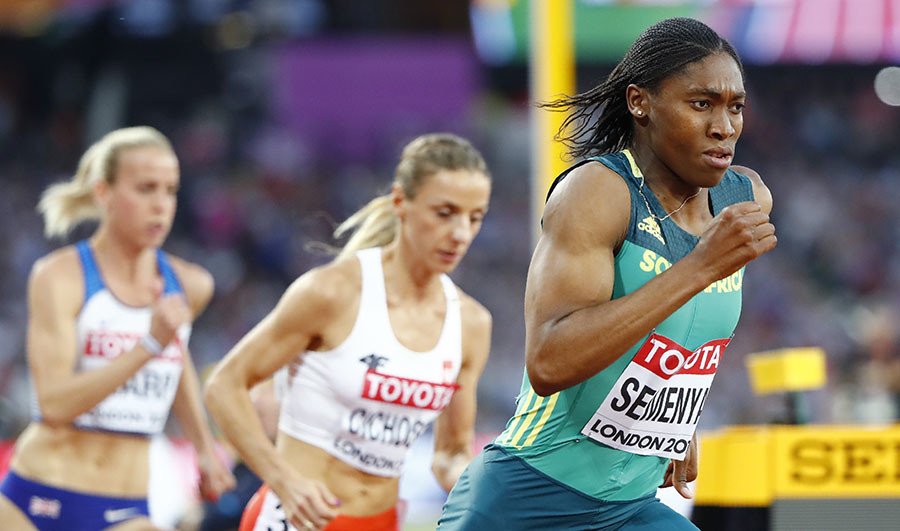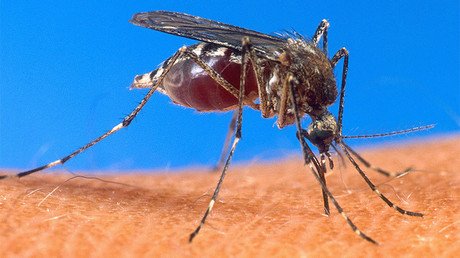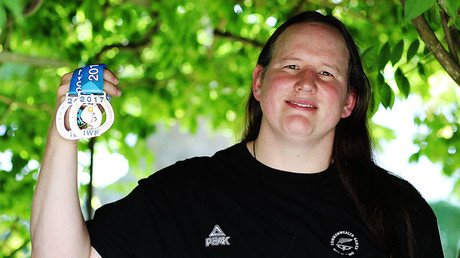South African runner Semenya dominates Commonwealth Games but faces possible IAAF ban

South African runner Caster Semenya, who took the women's 1,500m gold at the Commonwealth Games on Tuesday, may soon be banned from female races under a new IAAF hyperandrogenism policy.
On Tuesday, Semenya clocked a time of 4 minutes 00.71 seconds to win the 1,500m race almost three seconds ahead of the second-place finisher, Kenya's Beatrice Chepkoech, breaking the Commonwealth Games record in the process.
"I am very happy with how I performed tonight. I'm proud of my efforts," Semenya said.
"It was a good race, but I always want to improve in every race I have, and learn from my last races."

The South African athlete is bidding for a golden double on the Gold Cost, claiming victories in the 1,500m and 800m events. Having already clinched the first win, she will enter Friday's 800m race as the favorite to grab yet another gold.
The two-time Olympic 800m champion has always been surrounded by controversy, however, with many pundits questioning the fairness of participation in female competition and insisting that her testosterone level gives Semenya an essential advantage over her rivals. Following her first major triumph at the 2009 World Athletics Championships in Berlin, where Semenya displayed the fifth fastest women’s 800m time in history, the runner was forced to undergo a gender test to prove she was eligible to compete among women.
The International Association of Athletics Federations (IAAF) has recently used numerous gender tests, including physical examinations as well as chromosome and hormone testing, in a bid to make athletics competition fair and non-discriminatory at the same time.
Meticulous testing proved that middle-distance runner Semenya has a medical condition characterized by excessive levels of testosterone. Back then, several newspapers, including the Sydney Morning Herald and the Sun, reported that gender tests ordered by the IAAF revealed that the South African runner is a hermaphrodite who carries traits of both sexes. However, this information has never been officially confirmed.
In April 2011, the IAAF adopted a new code of rules regarding the eligibility of female athletes with hyperandrogenism (excessive levels of androgens in the female body), setting an upper limit for testosterone levels at 10nmol/L, and obliging anyone who doesn't meet the requirement to medically lower their hormones level to be able to compete.
The rule was reversed in 2015, however, after an Indian sprinter, Dutee Chand, challenged her disqualification from female events in the Court of Arbitration for Sport (CAS). The judges ruled that the IAAF had not produced sufficient evidence to prove that high testosterone could enhance athletes' performance, giving the body two years to prove its case.
Researchers who were tasked with examining the complicated issue found that female athletes with higher testosterone "have a significant competitive advantage" over rivals with lower testosterone in five events: the 400m race (2.7 percent advantage), 400m hurdles (2.8 percent advantage), 800m race (1.8 percent), hammer throw (4.5 percent) and pole vault (2.9 percent).
READ MORE: Transgender weightlifter out of Commonwealth Games after horror injury in record attempt
The new IAAF policy on hyperandrogenism, which comes into effect in November, prohibits women with a high level of testosterone from competing in track events between 400 and 1,500 meters, meaning that Semenya will either have to reduce her hormone levels or leave athletics.
The IAAF's new rules have already sparked controversy in sports circles, as both events, pole vault and hammer throw, where high-testosterone women have the greatest advantage, have remained unaffected by the newly-adopted guidelines.















